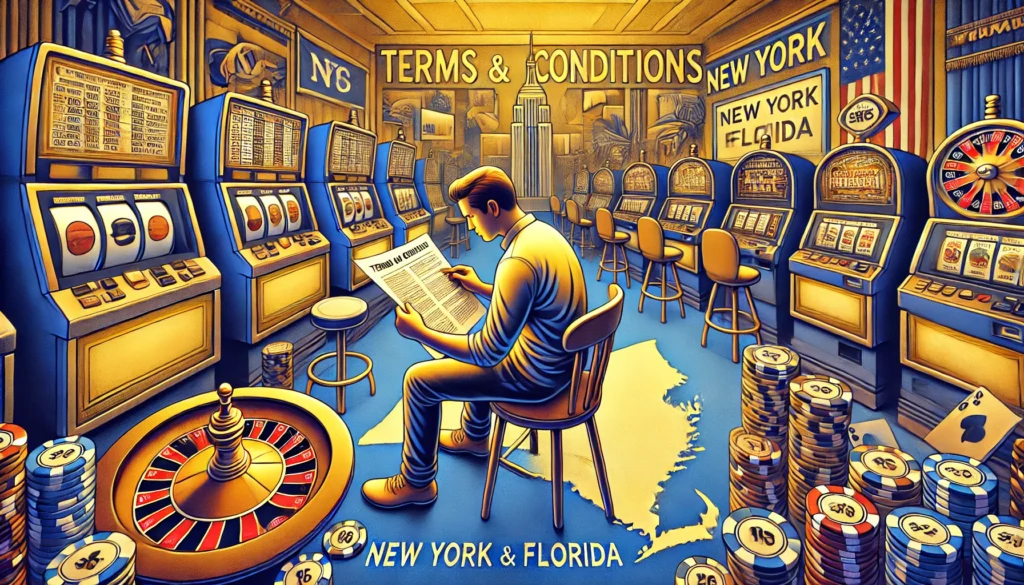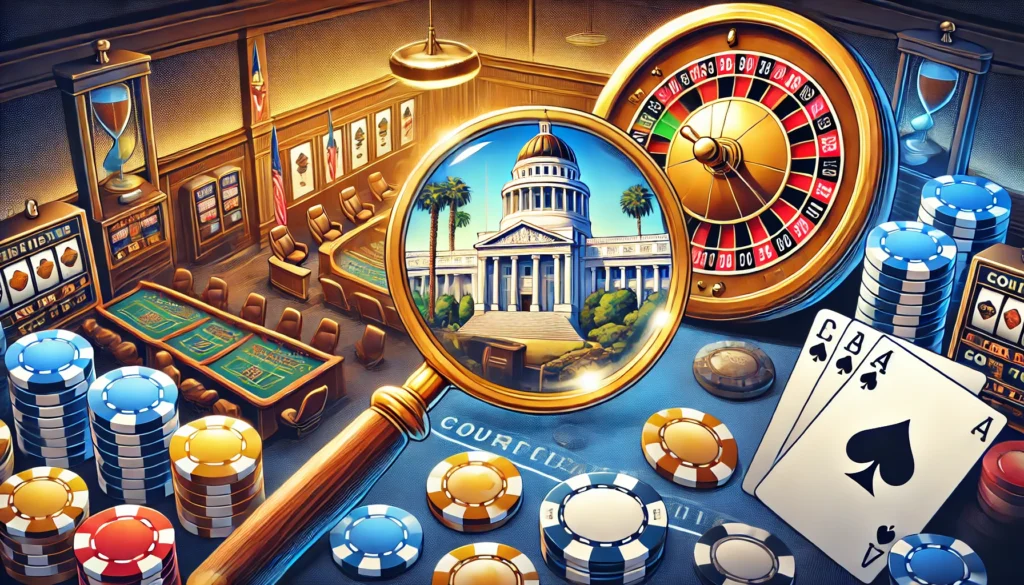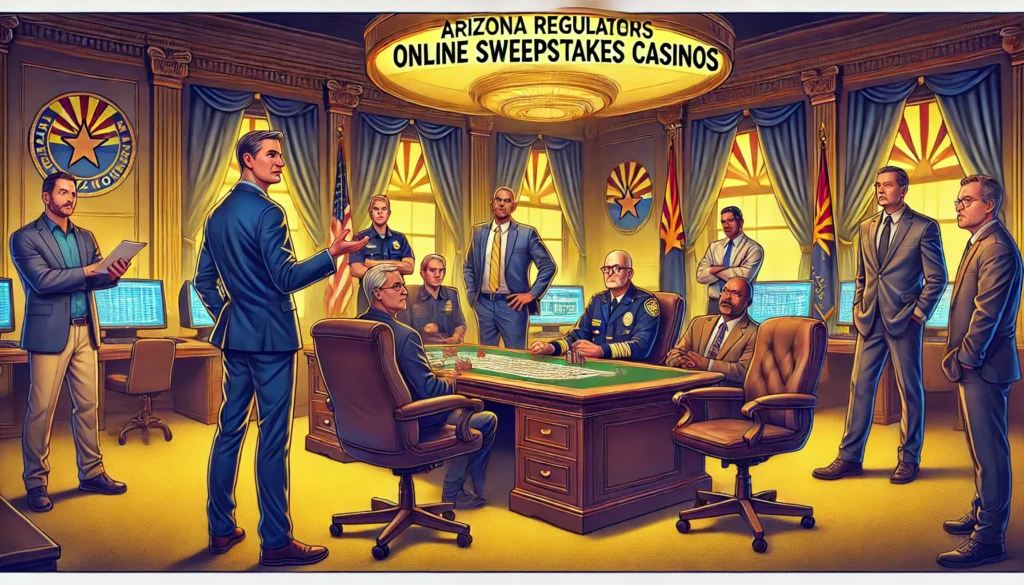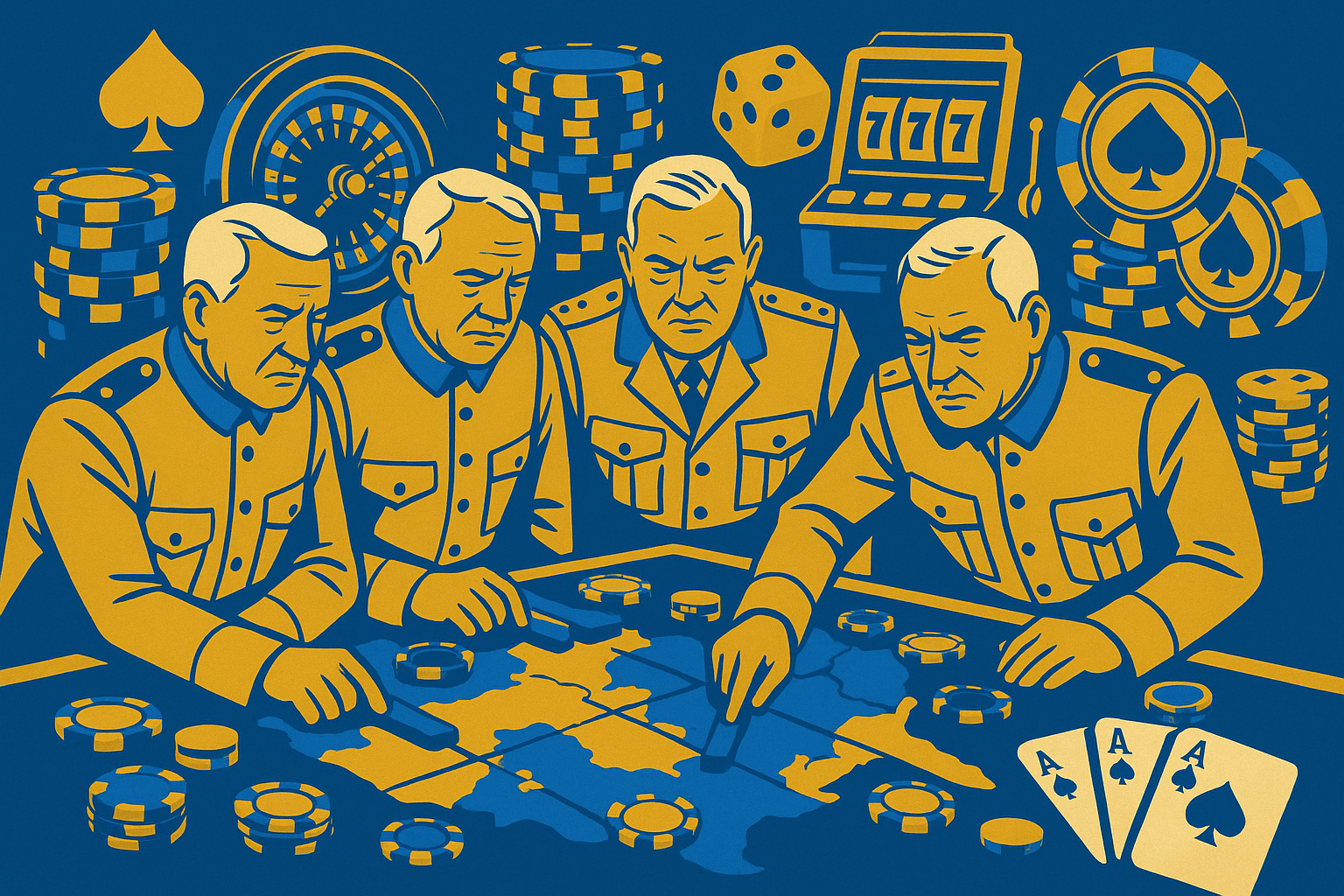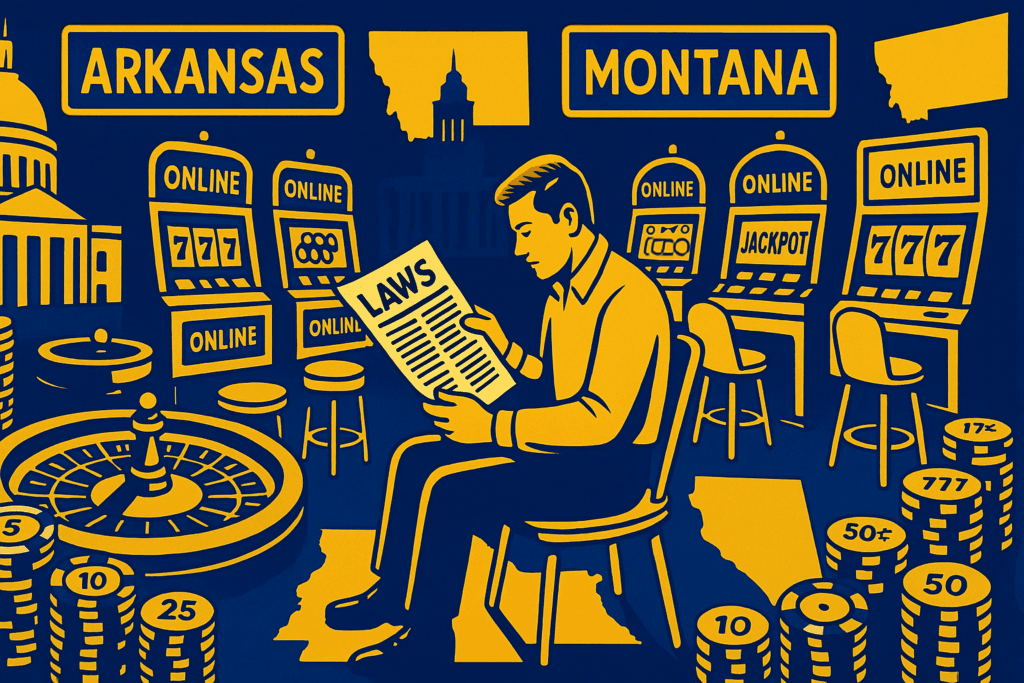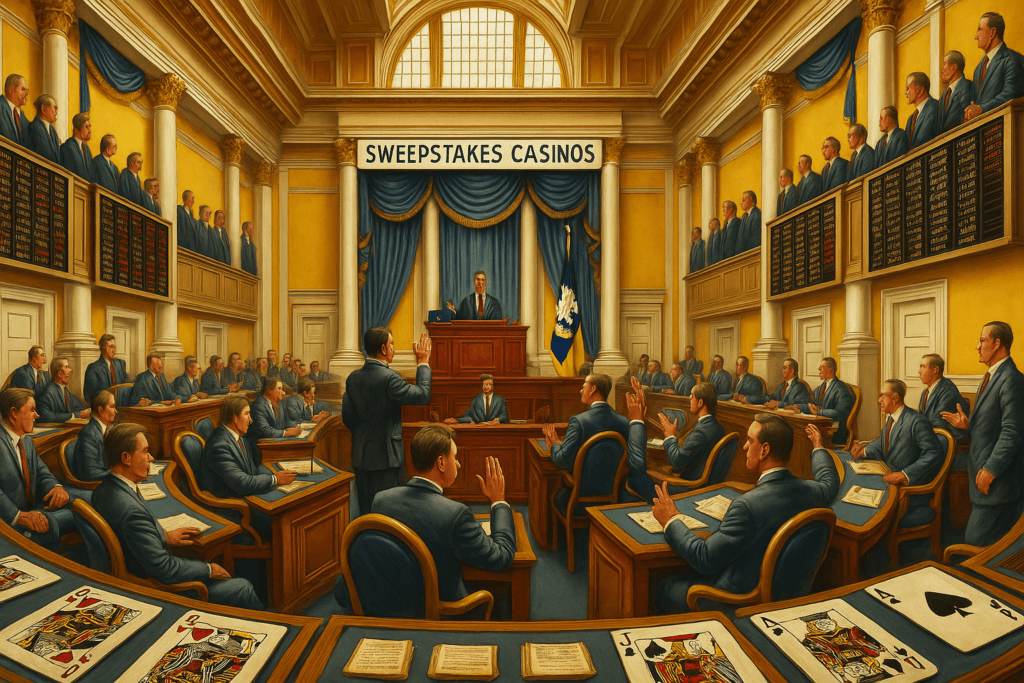An illegal Florida gambling operation involving 10 internet sweepstakes gambling cafes in Jacksonville is the target of a recent racketeering-related (RICO) civil case filed by the Florida Attorney General’s office. RICO refers to the Racketeer Influenced and Corrupt Organizations Act, originally put in place in 1970 to combat organized crime.
The civil RICO case filed in Duval County Circuit Court on Dec. 11 alleges that 17 individuals and entities were part of an illegal gambling operation that offered casino-style slots, arcade-style “fish games,” and also internet gambling games.
The case is a change of pace from most recent sweepstakes-related lawsuits, which have mostly involved civil suits against online sweeps gaming operators, filed by individual customers rather than Attorney Generals.
Details of the complaint and racketeering raids
The complaint alleges money laundering involving millions of dollars across 10 gaming facilities operating at different times since Sept. 2021. The AG’s office seeks injunctive relief, dissolution of implicated businesses, forfeiture of assets, and treble damages.
According to the Jacksonville Florida Times-Union, the Jacksonville Sheriff’s Office (JSO) seized $2.5 million in ‘illegally-sourced’ cash and arrested 12 people during the racketeering raids. Also seized were 263 illegal gambling devices and 52 guns. Police say they’ve been investigating the illegal gambling ring since March 2023.
Sheriff T.K. Waters warned during a news conference that illegal gambling establishments attract violent crime. He noted that the gaming centers in question were the sites of two reported murders, eight robberies and 26 aggravated assaults since police investigations of the establishments began.
“Where there’s illegal money, other crime exists,” said Waters.
Among the “high-level members” named in the case were: Jerry Bass, 74; George Azzam, 72; Robin Rukab Azzam, 65; Ryan Strickland, 41; and Majd Dabbas, 34.
Unregulated gambling operations are nothing new to Jacksonville, but it is a jurisdiction where the internet gambling cafe model is explicitly outlawed. The Jacksonville City Council voted in Oct. 2019 to enforce a previously established ban on “simulated gambling devices” operating at an estimated 140-160 internet gambling cafes at the time.
Significance for Sweeps Casino Industry
Daniel Wallach, a Florida-based U.S. gaming law and sports betting attorney, pointed out on LinkedIn that sweepstakes-related cases in Florida are usually dealt with by local law enforcement in conjunction with the Florida Gaming Control Commission, making this complaint unique.
“Maybe the multiple asset transfers and money laundering component are the impetus behind the filing of the lawsuit,” Wallach stated.
Wallach also pointed out that along with Florida Attorney General Ashley Moody, AGs in California and New York “are vested with among the most powerful civil enforcement remedies in the country,” putting them in unique positions that could make these states “hotspots on the sweepstakes issue.”
As we head into 2025, we could see the internet cafe sweepstakes model enter into more discussions related to the legal footing of online sweeps gaming sites. A complaint just filed in the San Francisco Superior Court (Thomas Portugal v. High 5 Entertainment) makes explicit connections between online social gaming sites and internet sweepstakes cafes of the early 2000s that were considered by some California courts of law to be fronts for illegal gambling operations.


